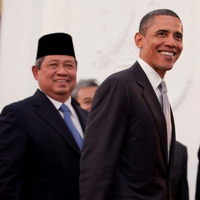It is unfortunate that President Barack Obama's visit to Asia as well as the G-20 summit in Seoul took place in the aftermath of what he himself termed a "shellacking" in the midterm elections -- an electoral rebuke delivered in part because Americans believe that the Democrats have not delivered on their promises of economic security. The trip could have been used to project the message that the United States is prepared to take the lead in the global community of nations. As Secretary of State Clinton put it back in September, "[T]he United States can, must and will lead in this new century. Indeed, the complexities and connections of today's world have yielded a new American moment, a moment when our global leadership is essential, even if we must often lead in new ways . . . "
Instead, whether deliberately or by accident, the key takeaway from the trip has shifted to how foreign relations can create domestic U.S. jobs. Alan Beattie, writing in the Financial Times, rhetorically asks, "Barack Obama: master and commander of the world economy, or merely peripatetic salesman-in-chief?" before concluding, "So far, it looks more like the latter." Meanwhile, Kanwal Sibal, evaluating Obama's Asian odyssey, noted, "The job-creation obsession evident during the visit underlined how short-term political pressures can distort the United States' handling of its priorities, apart from diminishing the stature of the U.S. president by projecting him as a salesman."
To compound the problem, Obama will leave Seoul without a revised and finalized free trade pact with South Korea. American and Korean negotiators closed some of the gaps but were not able to resolve all outstanding issues, so Obama and South Korean president Lee Myung-Bak, putting the best face on the situation, pledged that both sides "will continue to work together so that we can have a mutually acceptable agreement at the earliest possible date."

